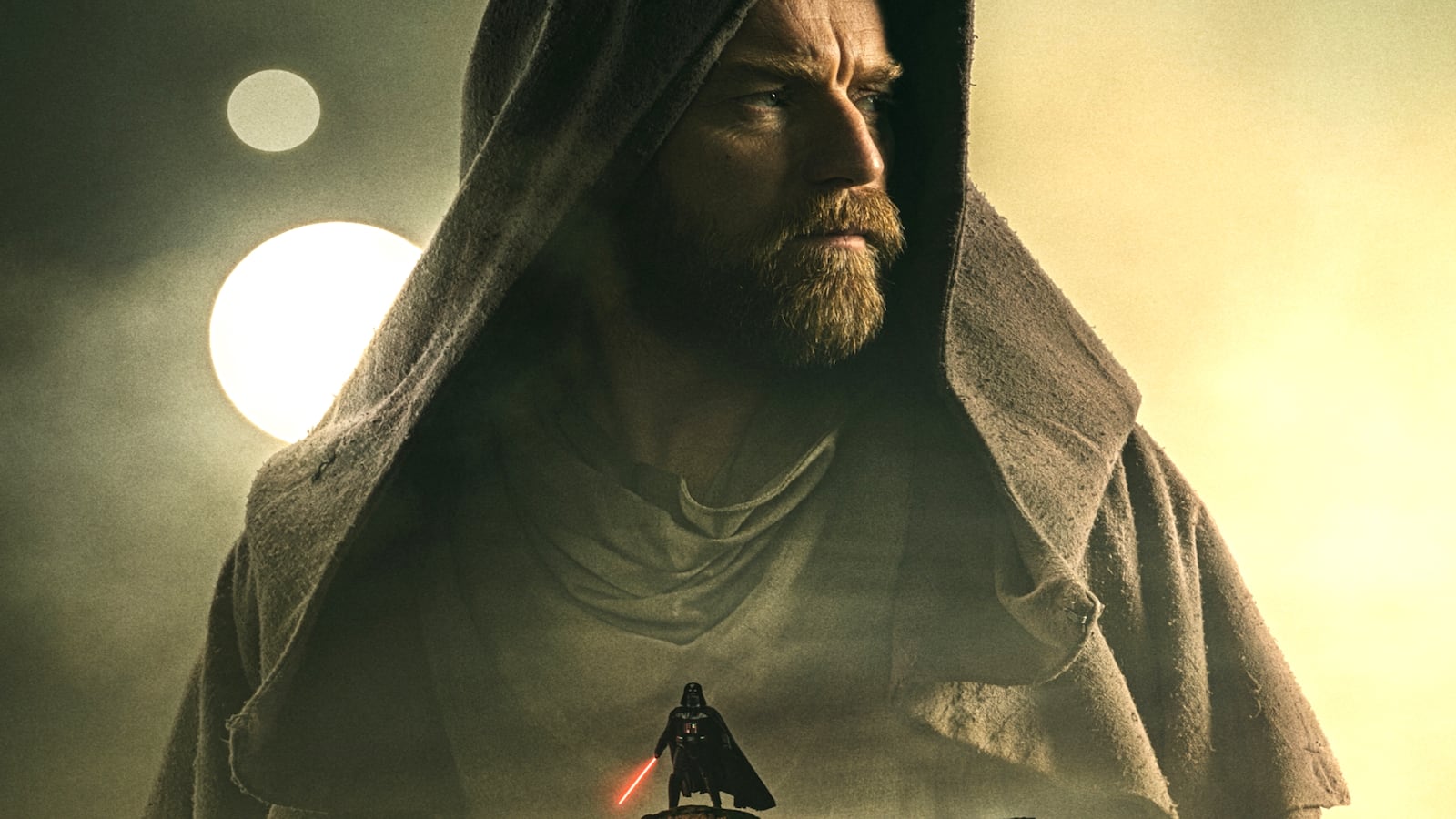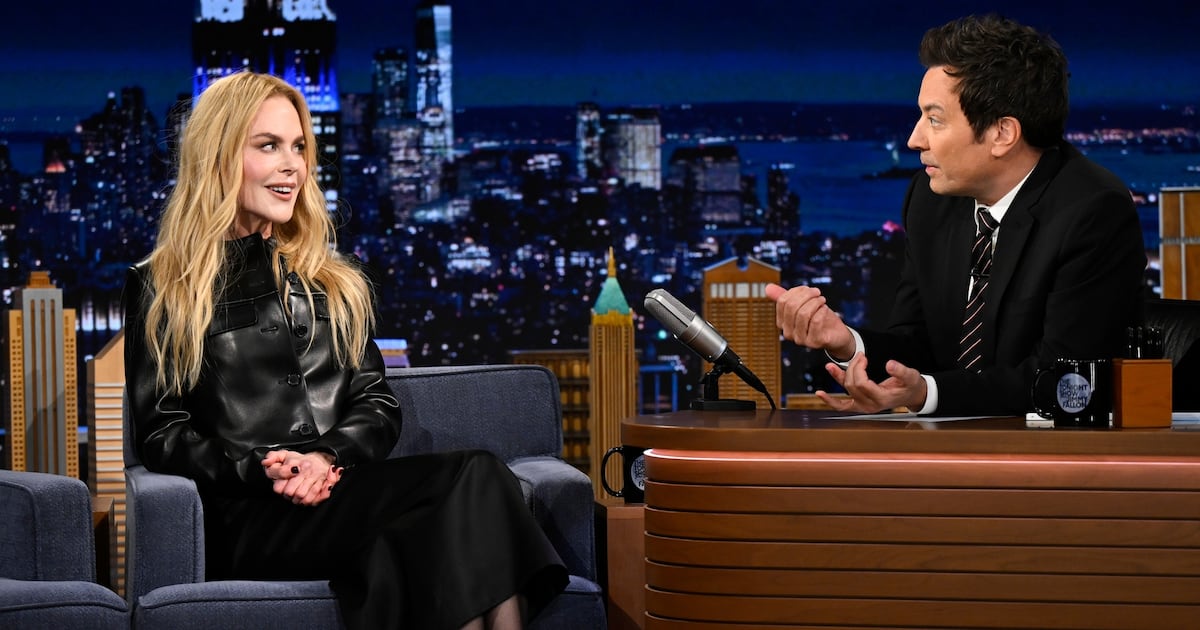Time may not heal all wounds, but it does sometimes allow one to overlook the bad in favor of the good. That’s certainly been the case with George Lucas’ Star Wars prequels, whose many shortcomings (The dialogue! The wooden acting! Jar Jar!) were rightfully ridiculed at the time, and yet now seem amusingly quaint and corny aspects of uniquely quirky and visually striking blockbusters made by an artist with a distinctive vision. Even when they’re lame (which is often), they’re at least interesting byproducts of a singular artist’s imagination, and thus far removed from the current flavorless tentpoles now dominating the American movie marketplace—including, of course, most of the Star Wars films and TV series produced since Lucas sold his franchise to Disney for a few billion.
All of which means that Obi-Wan Kenobi is a unique undertaking tasked with simultaneously expanding the Star Wars IP (à la its post-2005 offerings) and faithfully following in the footsteps of Lucas’ idiosyncratic second trilogy. Unexpectedly, on the basis of its first two episodes—which premiere today on Disney+—it appears to be capable of pulling off that balancing act. Re-enlisting Ewan McGregor for galaxy-saving duty as famed Jedi Obi-Wan Kenobi, showrunner Joby Harold and director Deborah Chow’s six-part affair feels like a natural extension of that which came before, led by its headliner’s subdued and world-weary performance as the Man Who Will Become Alec Guinness, whose failure to prevent talented apprentice Anakin Skywalker (Hayden Christensen) from turning to the dark side of the Force and transforming into Darth Vader remains, ten years after the conclusion of Star Wars: Episode III – Revenge of the Sith, a crushing blow from which he’s not yet recovered.
[Spoilers Inevitably Follow]
Following a brief recap of the prequels and opening sequence of Stormtroopers slaughtering Jedi, Obi-Wan Kenobi leaps forward in time to find Obi-Wan living a quiet life on Tatooine. He spends his days working at a desert market where a giant creature’s meat is processed for delivery, and his evenings traveling alongside other day laborers to the city center, from which he rides—on his Eopie, a camel with an anteater’s snout—back to his remote cave home. Obi-Wan is now a hermit carrying out his sworn duty to keep an eye on young Luke Skywalker, who’s residing on the farm of his uncle Owen (Joel Edgerton). During one surveillance stint, Obi-Wan spies Luke fleeing his household duties to pretend to drive a pod racer, and the look on the Jedi’s face—a blend of sadness, guilt and fear—indicates that he sees Anakin in the boy and is gravely concerned about what the future holds for him.
Obi-Wan Kenobi begins by implying that its protagonist’s latest odyssey will involve Luke. The series, however, subsequently pulls a bait-and-switch on audiences by shifting its attention to Alderaan, where 10-year-old Princess Leia Organa (Vivien Lyra Blair) bristles at her adoptive mother’s demands that she stop playing in the woods with her beloved droid—watching and identifying the passing starships overhead—in order to execute her royal duties. At a gala, Leia is mocked by her cousin for not being a true Organa, a sentiment swiftly shut down by her senator father Bail Organa (Jimmy Smits, returning to the Star Wars fold), who compassionately tells his precocious daughter that she’s destined to rule, and in fact that her desire to flee her leadership fate is precisely what makes her fit for the noble role.
Blair’s line readings may not be consistently great but, in the aftermath of Jake Lloyd’s much-maligned turn as adolescent Anakin, her performance suffices. That’s crucial to the success of Obi-Wan Kenobi, given that its story soon revolves around Leia. With the Republic in ruins and the Empire in command, Vader has created an army of Inquisitors to hunt down and eliminate the scattered vestiges of the largely extinct Jedi race. The Grand Inquisitor (Rupert Friend), a bald-headed fiend with a rotating lightsaber strapped to his back, leads one such battalion to Tatooine in search of any remaining Jedi, whose do-gooder tendencies reliably compel them to emerge from the shadows and expose themselves. One of the Grand Inquisitor’s minions, Reva (Moses Ingram), takes that lesson to heart, and before long is using it—against her master’s orders—to accomplish her own obsessive, ambition-driven quest: locate and capture Obi-Wan, and bring him to Vader.
To do this, Reva hires criminals (including the Red Hot Chili Peppers’ Flea!) to kidnap Leia and use her as bait to draw Obi-Wan out of hiding. It’s a shrewd plan that does the trick, and proves the catalyst for getting Obi-Wan off Tatooine—which is just fine by Owen, who wants nothing to do with the Jedi—and ensnared in a rescue mission. At outset, that’s a sturdy hook on which to hang Obi-Wan Kenobi, even if the first planet Obi-Wan visits resembles a wan approximation of Blade Runner’s futuristic Los Angeles. Chow directs the CGI-heavy proceedings with a patience and lucidity that keeps the material moving, and though the narrative has a tendency to glide past conflicts in an overly convenient manner, it builds intrigue at a suitable pace, all while introducing new characters (such as Kumail Nanjiani’s purported Jedi) before dispatching some of them in surprising fashion.
Vader will likely play a crucial role in Obi-Wan Kenobi, but in its maiden two installments, he only receives fleeting screen time. Instead, the series concentrates on McGregor’s morose and disillusioned Obi-Wan, whose inability to fulfill his obligation to Anakin has begat intense self-doubt and self-loathing, thrusting him into exile. More than his pint-sized co-star or Ingram (whose furious determination comes off as less than totally convincing), McGregor is wholly up to the challenge of shouldering the emotional weight of this series, which feels less like a cynical cash grab (despite being that) than a natural continuation of the saga that Lucas crafted more than two decades ago. And if a couple of fan-service cameos eventually make their way into the mix—say, from Obi-Wan’s own deceased mentor?—then let the Force be with it.






